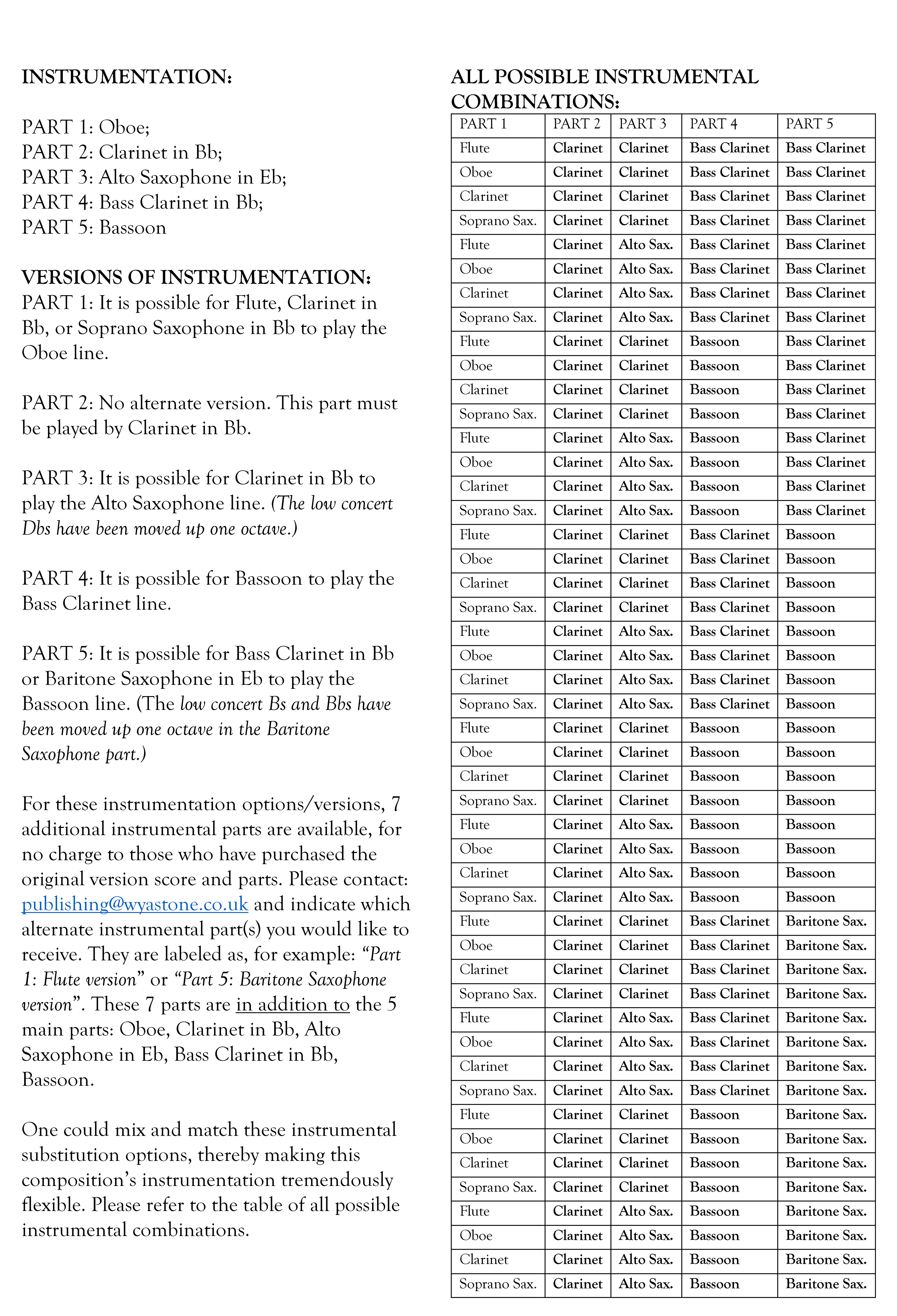First performance by the Akropolis Reed Quintet on 4 February 2024 at Morton Arboretum in Lisle, IL.
Commissioned by Akropolis Reed Quintet with generous support from Dick Niemi.
Duration: 5 minutes and 30 seconds
Informal reference recording is available for private listening. If you would like to review the recording please Contact Augusta Read Thomas.

Please contact: publishing@wyastone.co.uk and indicate which alternate instrumental part(s) you would like to receive.
Thomas’ imagination for BEBOP RIDDLE IV — Hummingbird Jamboree was inspired by the vibrant, dazzling technique, flair, spirit for adventure, and musicality of the Akropolis Reed Quintet. When composing, playing, and hearing BEBOP RIDDLE IV the virtuosity, flexibility, and energy of superstar jazz artists leaps to ear and mind. These forces, when intersected with other specific musical perfumes, formulate a unique sonic palette. A working image for this composition is that of a hummingbird jamboree — animated, sprightly, energized hummingbirds zipping around in all directions. Hummingbirds hover at rapid wing-flapping rates, which are signified by the trills in the composition. Hummingbirds are the only vertebrates capable of sustained hovering and can fly backwards and upside-down which inspired the music’s whimsical and dexterous turns of flight.
Thomas said, “I love how music talks with music.” Imagine the pointillistic intricacy and contrapuntal, conversational, interlocking-lines of J.S. Bach’s keyboard music crisscrossed with Bill-Evans-and-Thelonious-Monk-like harmonies, then further overlapped with the energy of bebop’s fast tempo, rapid chord changes, mood shifts, rhythmic invention, and instrumental flair. Thomas braids these auras (there are no musical quotes in the composition) into a personal, nuanced amalgam that captures the spirit of improvisation, at turns whimsical, soulful, vivacious, reflective, and animated. Thomas said, “There is a lifeforce when one musician speaks in music with another. Even if from time to time one musician is silent, there is still an animated spirit and energy.” She writes on her score, “Full of spirit; Enthusiastic inner-lifefor each note, line, and hocket.” This refined composition is a 5-minute and 30 second conversation conversation between wind players as well as a conversation between composer and some of her musical idols. Thomas is composing a series of “Bebop Riddles” all of which are completely independent, unique works. Bebop Riddle IV was made possible with generous support from Dick Niemi. Dedicated with admiration and gratitude to Akropolis Reed Quintet and Dick Niemi.

To obtain examination or performance material for this
Augusta Read Thomas work, please contact Nimbus Music Publishing.
